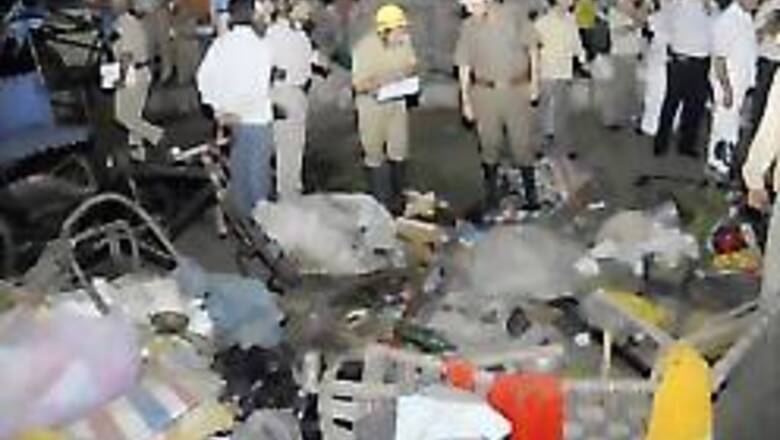
views
New Delhi: The serial blasts on Saturday that ripped through the national capital's three teeming business hubs killing at least 18 and injuring nearly 100 is the fourth terror act allegedly triggered by the Indian Mujahideen, the terror outfit that became increasingly more notorious since late last year.
The Indian Mujahideen claimed responsibility for the Delhi bombing in an e-mail to the media, though the police said they were unsure about the perpetrators. Earlier, the outfit had also owned the serial bombings in Ahmedabad - July 26, Jaipur - May 13 and in three towns of Uttar Pradesh last November.
The Indian Mujahideen, believed to be a front organisation of the Students Islamic Movement of India (SIMI), Lashkar-e-Toiba (LeT) and Harkat-ul-Jihad-e-Islami (HuJI) outfits, had even sent out prior warnings on all the three occasions.
On Saturday, when Delhi's market places were crowded with weekend shoppers, six blasts were triggered minutes from each other creating panic in the capital.
The latest email - "Message of Death" - sent to various media outlets five minutes before the first blast in Gaffar Market and attributed to the Indian Mujahideen says: "Indian Mujahideen strikes back once more within five minutes from now. Do whatever you want to stop us if you can."
Delhi Police joint commissioner Karnail Singh said: "The Indian Mujahideen has claimed something but we are not very sure about it."
The Intelligence Bureau claims the Indian Mujahideen is a ploy by terror outfits to misguide probe agencies. Intelligence sources said the outfit is just a new name used by terror groups banned by the government in the last few years.
The sources said that the Indian Mujahideen comprises activists from banned outfits like HuJI and the Students Islamic Movement of India (SIMI).
The heat was on the HuJI, which masterminded the Hyderabad blasts and in the Muslim shrine Ajmer Sharif in Rajasthan last year, the sources said, adding it became imperative for them to give their outfit a new name in India.
The Indian Mujahideen also has youngsters who were part of the SIMI. There are reports that several youngsters from the banned outfit had been recruited into various terror outfits including HuJI.
At least 20 synchronised bombs went off within less than two hours rocked the city of Ahmedabad in Gujarat July 26, killing 15 people and injuring over 70.
An email sent five minutes before the Ahmedabad blasts and attributed to the Indian Mujahideen had warned: "The Indian Mujahideen strike again! - Do whatever you can, within five minutes from now, feel the terror of death!"
The modus operandi used in Ahmedabad was similar to the ghastly blasts in Jaipur claiming 68 lives and those in the Uttar Pradesh towns of Varanasi, Faizabad and capital city Lucknow.
The Indian Mujahideen had emailed video clips to two Delhi-based media organisations of a bicycle, which it said was packed with explosives and similar ones were set to go off at half a dozen sites in Jaipur, with an aim of disrupting the tourist industry.
The claim was also sent to the Bharatiya Janata party (BJP), which rules Rajasthan.
The Indian Mujahideen claimed responsibility for the Nov 23, 2007, serial bomb blasts in Varanasi, Faizabad and Lucknow where at least 13 people were killed.
The e-mail from [email protected] ID received by a private TV channel claimed the blasts were targeted against Uttar Pradesh lawyers as they had thrashed terrorists and refused to take their cases.
The e-mail was received by the channel just a few minutes before the blasts.
It said that "Islamic raids" would be conducted against lawyers within a few minutes because the police apprehended "two innocent groups and framed them with fake charges".










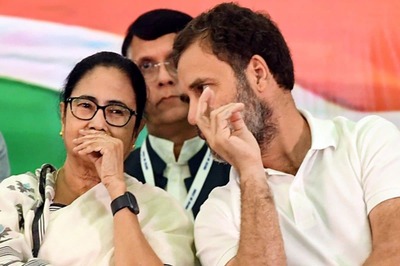

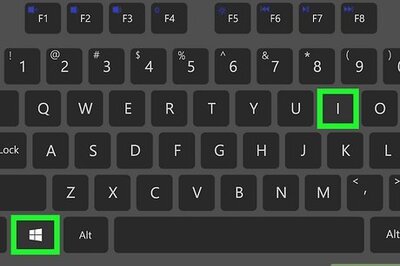

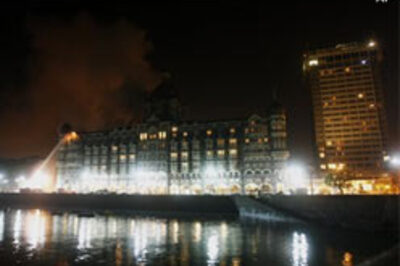


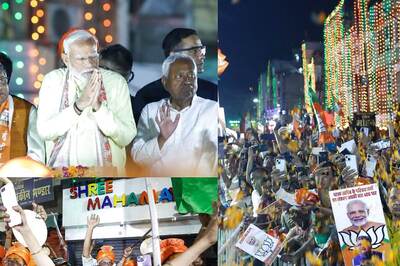
Comments
0 comment